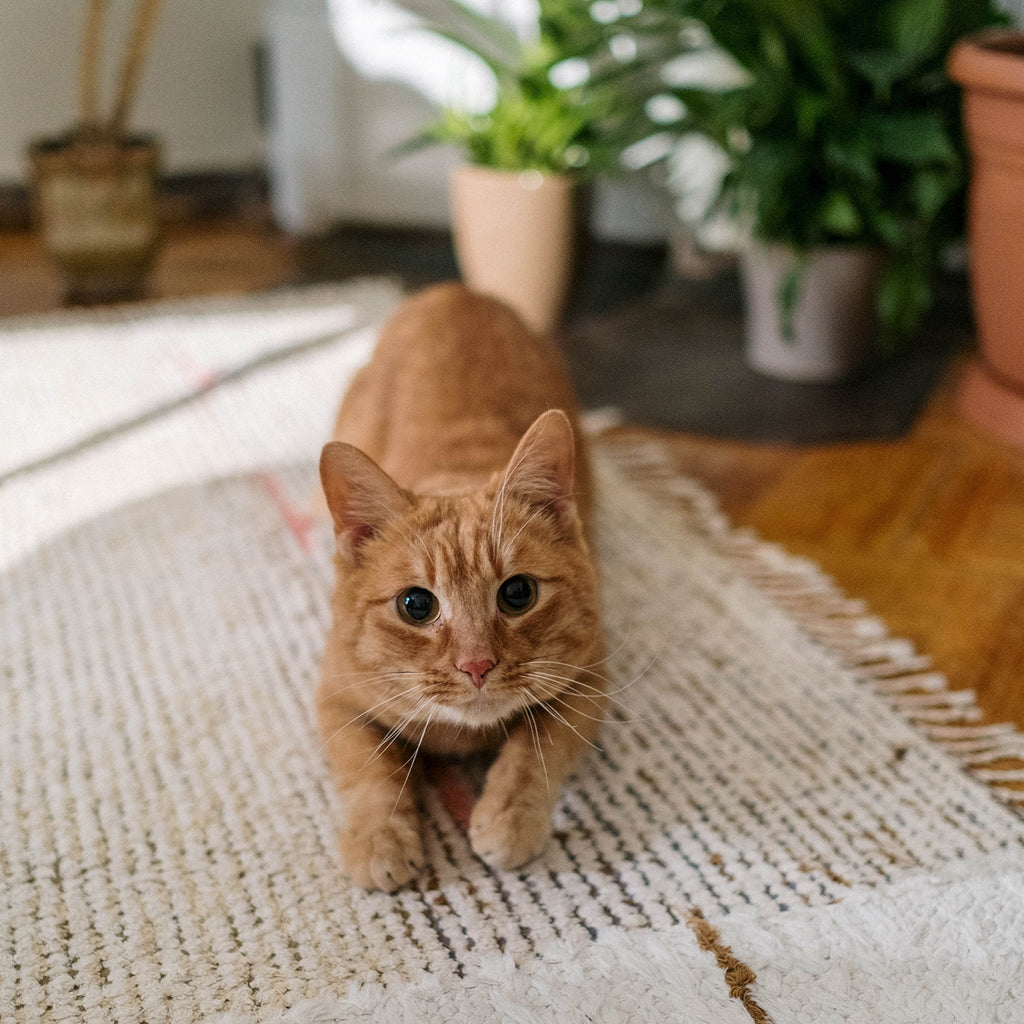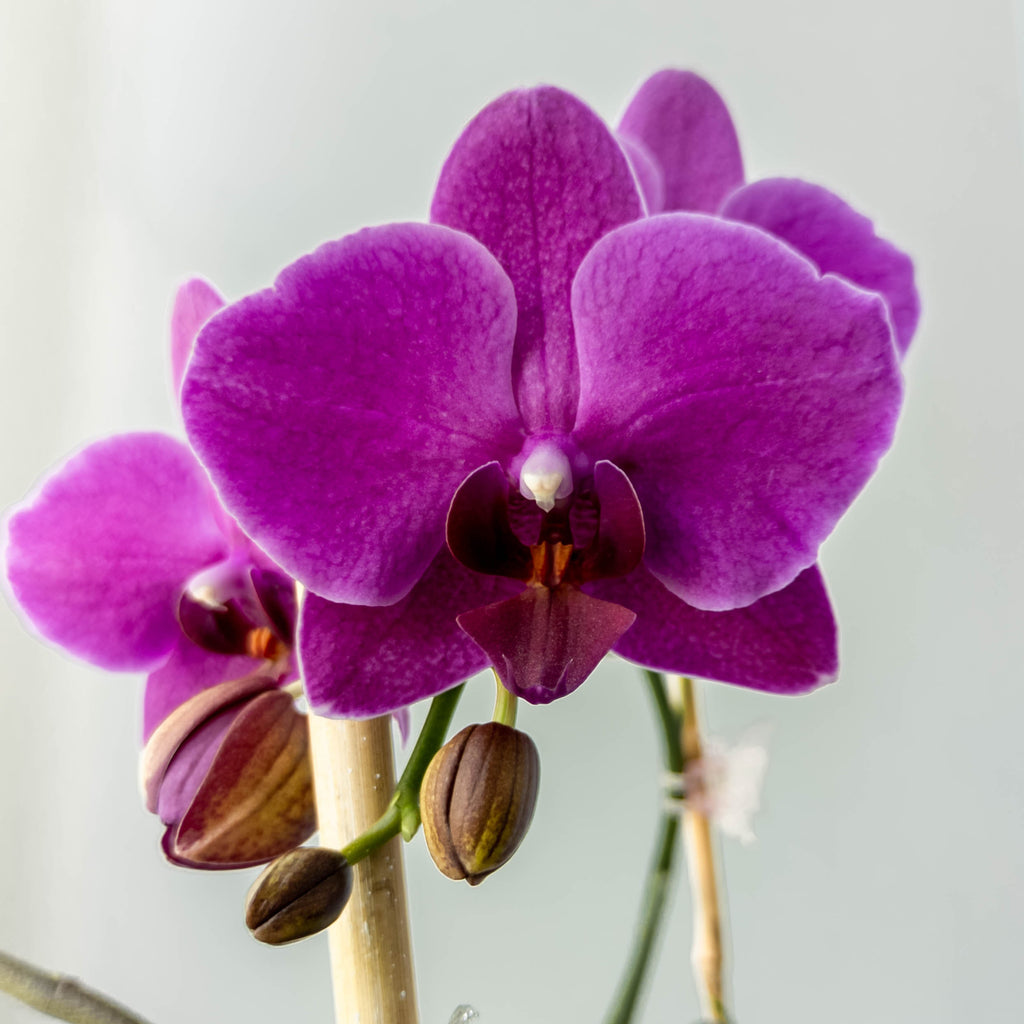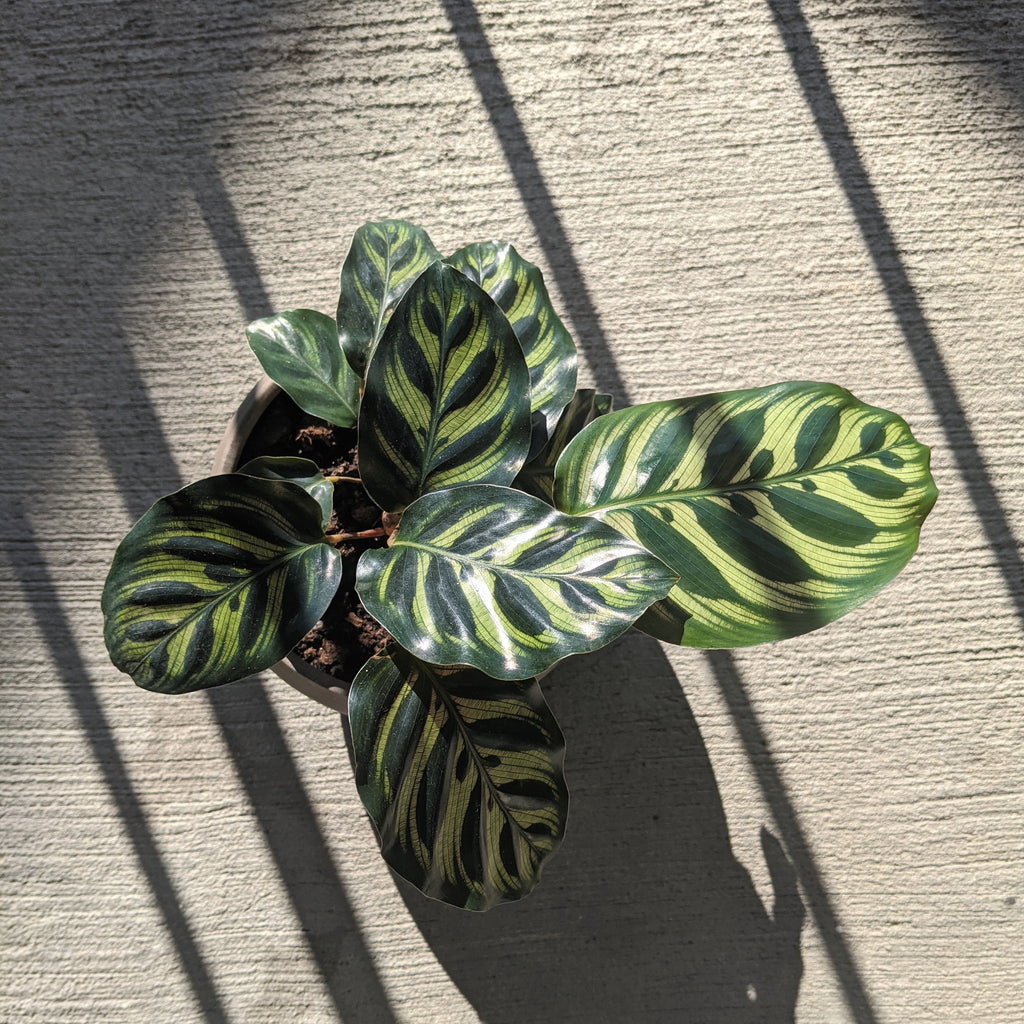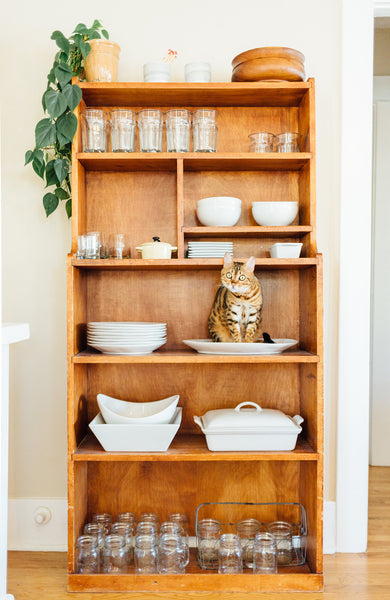Plant friends both you and your pet will love!
From plants to herbs, Shopleaf Plant Studio has a wide collection of safe and non-toxic greens that you and your furry friends will love!

Pet parents make small sacrifices and changes to the home when a pet joins the family. Maybe you let go of furniture that won’t survive the curiosity of your furry friends, because pets will surely play and nibble on anything they get their paws on (even an unsuspecting plant). While being more selective about home decor or furniture is part of taking extra care of your fur baby, what about when you need to swap out another important addition to the home, your houseplants?

The American Society for the Prevention of Cruelty to Animals (ASPCA) has a full list of plants that are toxic to your dogs and cats, even horses! Of course, not all plants are toxic to pets. In fact, there’s an extensive list of plants you and your fur baby will love. Read on to discover how to keep and care for houseplants (and herbs!) that are safe and pet-friendly.
HOUSEPLANTS
Like pets, houseplants are overall mood boosters. But more than adding a touch of green to reduce stress, houseplants are actually good for your (and your pets’) health. Most houseplants are natural air purifiers that release oxygen and absorb carbon dioxide. They can even remove up to 87 percent of toxins found in the air.
Air Plants

The best thing about air plants is that they’re low-maintenance (so much so that they don’t even need soil to grow!), and they only need to be sprayed every other day or soaked in water once a week. Air plants are compact and can be kept out of reach of your pets—hang them above head, or in a glass jar as an accent piece on a desk or shelf. On the off-chance that your pet does get a hold of your air plant, don’t sweat. They’re not toxic to dogs, cats, even birds and reptiles!
Pro Tip: Air plants still need light to survive, so make sure that the space where you will keep your air plant has adequate light or is near an artificial light source. If the leaves curve inward, you’ll know it’s time to give it a good misting!
Phalaenopsis Orchid

A popular, pet-friendly species of plant is the orchid and the easiest variety of orchid to grow as a houseplant is the phalaenopsis orchid. An elegant addition to your home, the phalaenopsis orchid is non-toxic to both cats and dogs, according to the ASPCA. While orchids are an intimidating bunch to new plant parents, phalaenopsis orchids are low maintenance as long as they get enough indirect light and the soil is kept slightly damp.
While orchids are non-toxic, it’s best to keep your precious plant out of reach of pets. Decorate the top of a console table or counter top with this stunner to add a touch of sophistication to your space and keep it out of paw’s reach.
Pro Tip: Growing a happy, healthy orchid is a result of finding the balance of the right humidity, temperature, light, and airflow for your plant. Orchids are warm plants, and can thrive in an east, south, or west window. You’ll know they’re healthy when their leaves have a darker green shade.
Calathea

Calathea is one of the easiest tropical houseplants you can grow and is also non-toxic to cats and dogs. Another name for calathea is “prayer plant” because of the way its leaves spread out in the morning to catch the sun and curl up at night to rest. Its dark green veins make this plant an attractive addition to your home, and an easy way to decorate a drab table top or bookshelf, but make sure it’s placed where it can get enough light.
Calathea thrives in medium to bright, indirect sunlight and enjoys humidity. Water completely and let the soil dry out fully before watering again. Monitor your plant for several weeks to get the hang of a watering schedule that works well in the space you’re keeping it in.
Pro Tip: Because tropical plants love humidity, group your calathea with other plants to enhance overall humidity levels without keeping a humidity meter or a pebble tray.
HERBS
Growing herbs at home can promise an almost endless supply of fresh, clean, and scrumptious ingredients for your favorite dishes. The best part about choosing herbs as an indoor plant is that they’re your pet’s least favorite snack option. Most herbs have a pungent or strong odor that repels pets, especially dogs. This smell doesn’t bother humans, but doesn’t really give pets the most appetizing snack option either, so your pet will most likely choose otherwise.
Rosemary

Rosemary is a handy herb that you can keep within arm’s reach at home. Infuse flavor into chicken, meat, or fish, or add it to soup or vegetables to instantly elevate your dish. Rosemary is a non-toxic herb that your pets will stay away from because of its strong odor and flavor. But if a curious doggo does try to nibble on a sprig of rosemary, don’t fret. Rosemary contains antioxidants, iron, calcium, and Vitamin B6 that are good for your pet, but should not be used as a vitamin substitute.
Rosemary enjoys a more humid environment, and prefers to stay on the dry side. Water it when the top layer of soil is dry (or use an aquameter to tell you when it’s time to water your plant!), and ensure it gets at least six hours of sun.
Pro Tip: The best part about growing herbs is that you get to use them! Harvest your rosemary when the leaves are colorful and aromatic. Keep in mind that hard pruning can stress the plant, so make sure to only cut off about one third of the branch.
Oregano

Commonly recognized as an ingredient in pasta or pizza sauce, oregano has a number of health benefits for dogs if consumed in moderation. This super herb has antibacterial, antifungal, and antiviral properties, and can even help reduce inflammation, swelling, and digestive problems in dogs. Some commercial dog food also contains oregano in their ingredients, to give your dogs the right amount of oregano in every bite. Keep in mind that oregano ingested in large amounts can cause mild vomiting and diarrhea in pets.
Oregano grows well indoors, but remember to give it enough sun. Like most herbs, water your oregano thoroughly only when the soil is dry to touch.
Pro Tip: While oregano is widely used as added nutrition for your dogs, it’s best to consult a veterinarian before introducing oregano to your dog’s diet.
Basil

Basil is a favorite among the herb-loving community for how it can almost single-handedly create a delicious plate of pesto or top your favorite pizza. Not only is it a ready meal in a pot, but basil is also a dog-approved herb! Sprinkle a pinch of chopped basil into your dog food for a healthy boost of antioxidants. Basil is also known to help prevent cancer and ease arthritic pain as it is anti-inflammatory, too!
Basil loves water, so water consistently and regularly. Ensure the plant receives at adequate sunlight, and harvest big leaves when ready to encourage new growth.
Pro Tip: If your Basil is leggy, it might be because it’s not getting pruned enough. Prune once every two weeks and keep it under full sun to maintain a bushy plant.


Plant friends both you and your pet will love!– Shopleaf Plant Studio
eijfekphdb http://www.g6ixob74lj9z2l69b786774eg06zhm1es.org/
[url=http://www.g6ixob74lj9z2l69b786774eg06zhm1es.org/]ueijfekphdb[/url]
aeijfekphdb
Plant friends both you and your pet will love!– Shopleaf Plant Studio
[url=http://www.gv1qme8i594q084m375m7zc2tmqt1o12s.org/]upfqmxivqm[/url]
apfqmxivqm
pfqmxivqm http://www.gv1qme8i594q084m375m7zc2tmqt1o12s.org/
Plant friends both you and your pet will love!– Shopleaf Plant Studio
aykwpynsqk
ykwpynsqk http://www.gn9oz2mo86dtq7x64b2110t1zr167l0hs.org/
[url=http://www.gn9oz2mo86dtq7x64b2110t1zr167l0hs.org/]uykwpynsqk[/url]
Plant friends both you and your pet will love!– Shopleaf Plant Studio
[url=http://www.gmxpr8fo387726j1f92hsm6y12jq1v51s.org/]urifdyezgkq[/url]
arifdyezgkq
rifdyezgkq http://www.gmxpr8fo387726j1f92hsm6y12jq1v51s.org/
Plant friends both you and your pet will love!– Shopleaf Plant Studio
[url=http://www.ga271581smv2zk34op8y9045px4mbfq1s.org/]uzmgsfmcvxl[/url]
zmgsfmcvxl http://www.ga271581smv2zk34op8y9045px4mbfq1s.org/
azmgsfmcvxl